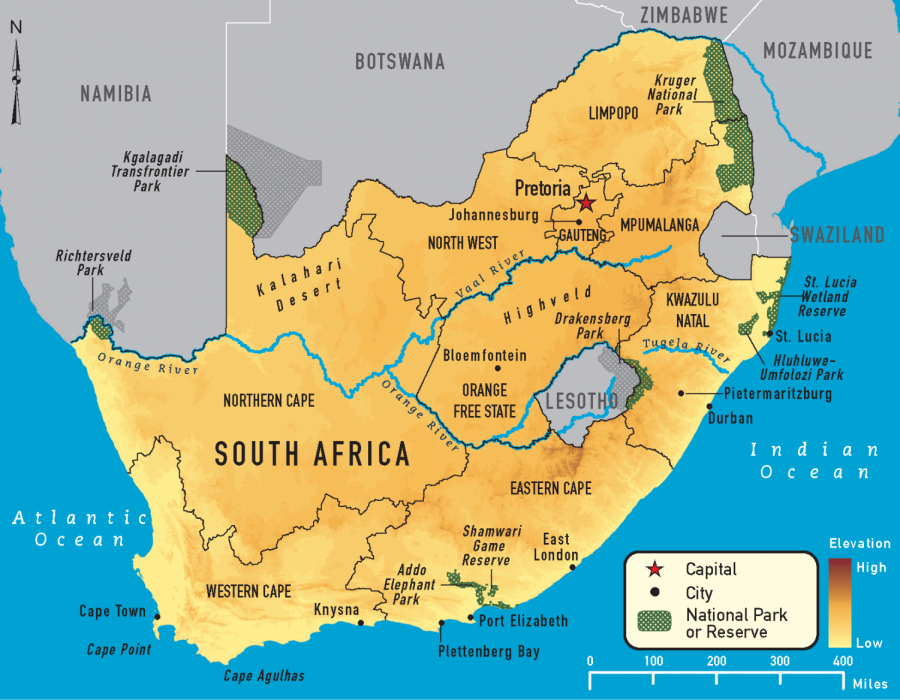What’s Going on in South Africa?
March 13, 2018
By Daniel Nesbitt ’18, Contributor
Recently, South African parliament “voted overwhelmingly in support of a motion to accelerate equitable land redistribution through expropriation of land without compensation.” While this is interesting in itself, it is even more intriguing considering that 73.3% of farmland in the country is owned by whites. This motion was promulgated by Julius Malema, the current President and Commander-in-Chief of the Economic Freedom Fighters (EFF), a revolutionary Marxist party. In addition to promoting this motion, at a recent voter registration rally, he said “We have taken a decision that we are going to remove the mayor of PE [Port Elizabeth] because the mayor is a white man.” He later added, “We are cutting the throat of whiteness.” These statements and sentiments are very disconcerting. In addition, land expropriation without compensation has never succeeded in a similar country with a similar economic system. For example, Zimbabwe saw eight years of economic decline after instituting a policy that removed all compensation from land expropriation. According to South African economics professors Johann Kirsten and Wandile Sihlobo, if the government declines to pay compensation, “then someone else will have to pay for it, indirectly,” resulting in “the entire economy and its citizenry paying for land seizures through lost agriculture export revenues, job opportunities and more.” Furthermore, these actions will assuredly increase racial tensions in an already unstable environment.
Another significant development from South Africa comes from its new minister of finance, Nhlanhla Nene. According to Jonathan Turley, a law professor at George Washington University, Nene’s plan to eliminate poverty is to “print new money and simply give it to them.” Anyone with a simple understanding of economics knows that this is a recipe for disaster. For example, as any students reading this will remember from Mr. Black’s class, Germany saw massive hyperinflation after WWI due to the increased printing of money and no significant change in product output. Between August 1992 and November 1923, prices quadrupled on average and there was a monthly inflation rate of 322%, an unprecedented rate. This was largely due to the increased supply of currency, the German mark, the number of which increased by a factor of 7,320,000,000. In addition, Zimbabwe experienced a similar hyperinflation in 2008 with the monthly inflation rate peaking at 79,600,000,000% in November of that year. If South Africa does pursue increased money printing the effects could be disastrous.
Given these two recent developments, I encourage you all to keep an eye out in the news for South Africa as things could go awry very soon.
Sources:
https://www.dailywire.com/news/27896/south-african-politician-we-are-cutting-throat-paul-bois
https://jonathanturley.org/2018/03/05/south-africa/
http://www.econlib.org/library/Enc/Hyperinflation.html



